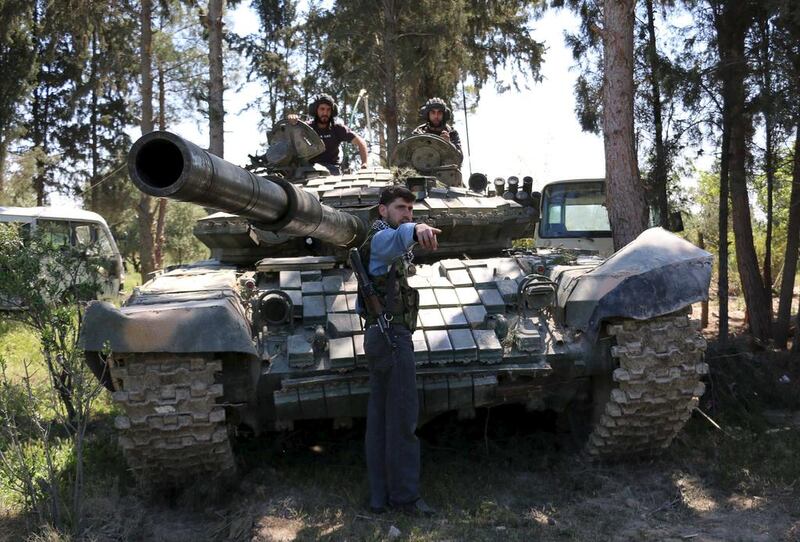Saudi Arabia’s role in the Syrian conflict has been the subject of much speculation. Are the recent rebel gains in northern, central and southern Syria part of an escalation against Iranian-backed forces? Do these gains mark the beginning of the end for Bashar Al Assad?
Saudi Arabia has previously supported large-scale operations against the Syrian regime but those operations lacked a strategy. High expectations during such operations often led to disappointment and played into the regime’s hands.
It is clear that this time is different. Conversations within policy circles in the Gulf indicate that the regime’s downfall is not necessarily the goal right now. Nor is it to compel the Assad regime to negotiate. Instead, the goal is simply to project power through the rebels against Iran’s allies.
There is also an intention to strengthen Sunni militias to build stability. Various political and military forces within the country will be working towards one goal despite their different allegiances. Beyond influence, opposition forces will be backed to potentially lead future Syria. To achieve these goals, Saudi Arabia is working closely with Turkey and Qatar.
However, the gains made by the rebels in the north have little to do with Saudi Arabia. Turkey and Qatar have provided financial support to their allies. For more than a year, aid to groups widely known to be supported by Turkey and Qatar was blocked because of resistance from the US and Saudi Arabia. That changed recently and the rebels have since gained momentum.
There have been other key factors. Rebels in the north are working with more harmony than ever before. Ideologically aligned forces also worked in separate groups but closely coordinated with others through separate operations rooms.
The growing strength and coordination among the rebels comes amid a reverse trend within the regime forces. Even pro-government media channels have repeatedly acknowledged the gains have caused panic among the regime’s support base. Infighting has also been reported. Syrian army officials have complained of the Iranian role in weakening the military in favour of the National Defence Forces, a parallel force directly funded by Tehran.
These factors make Riyadh’s role more relevant. The kingdom has a plan to bring together various opposition forces against the regime.
In public, the plan involves political forces to eventually negotiate with the regime. But it also involves well-supplied rebel factions to fight the regime and aligned militias in the country. Syrian rebels led by Jabhat Al Nusra are already fighting Hizbollah in the Qalamoun region near Lebanon.
Division of labour is the new name of the game. Turkey and Qatar will coordinate with their allies on the ground and Saudi Arabia will directly assist internationally recognised moderate forces. The political opposition will be pressured to set its house in order and work together to formulate a more credible force to coordinate and mediate among various rebel factions.
After the dismantling of Hazm Movement and the Syrian Revolutionary Front from northern Syria, Saudi Arabia’s influence among the rebels is mostly in the south. Last week, Jaish Al Islam, a faction that operates mostly in the agricultural belt surrounding Damascus known as the Ghouta that is backed by Riyadh, put out an impressive military parade to celebrate the graduation of 1,700 fighters.
The display, a few kilometres from the presidential palace, added insult to injury for the regime. The president of the opposition’s National Coalition said this week that the unofficial ban on the rebels receiving anti-aircraft weapons will come to an end, a move that might shift the conflict dynamics quickly and lead to the creation of de facto safe havens in northern and southern Syria.
Despite Riyadh’s intentions, the defeat of the regime is not a foregone conclusion. The effort by Saudi Arabia might still be short-lived. The rebels require a much more long-term effort than coordination and increased weapon supplies. But the conflict is already changing and a new reality will soon emerge.
Hassan Hassan is a Middle East analyst and co-author of ISIS: Inside the Army of Terror
On Twitter: @hxhassan





